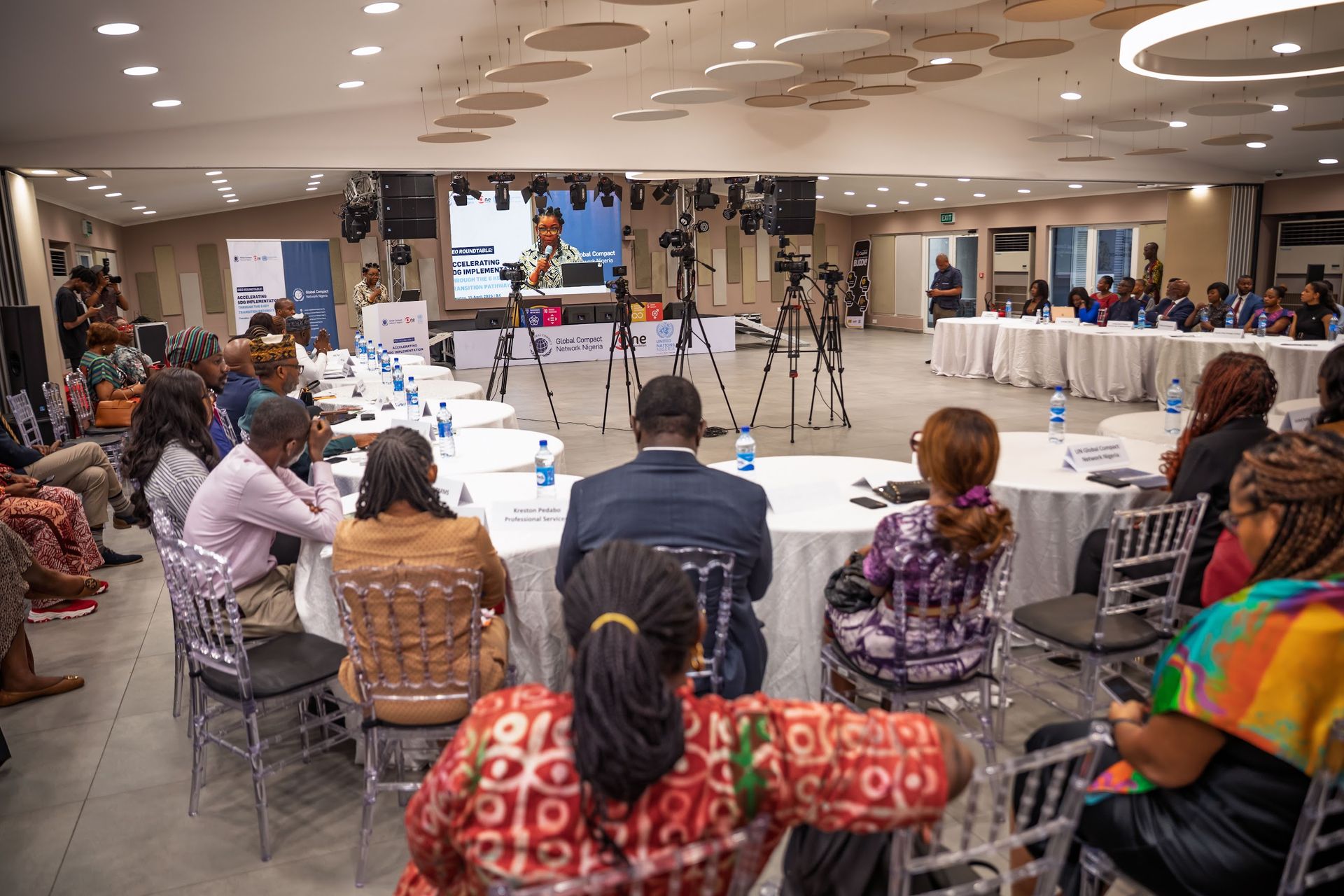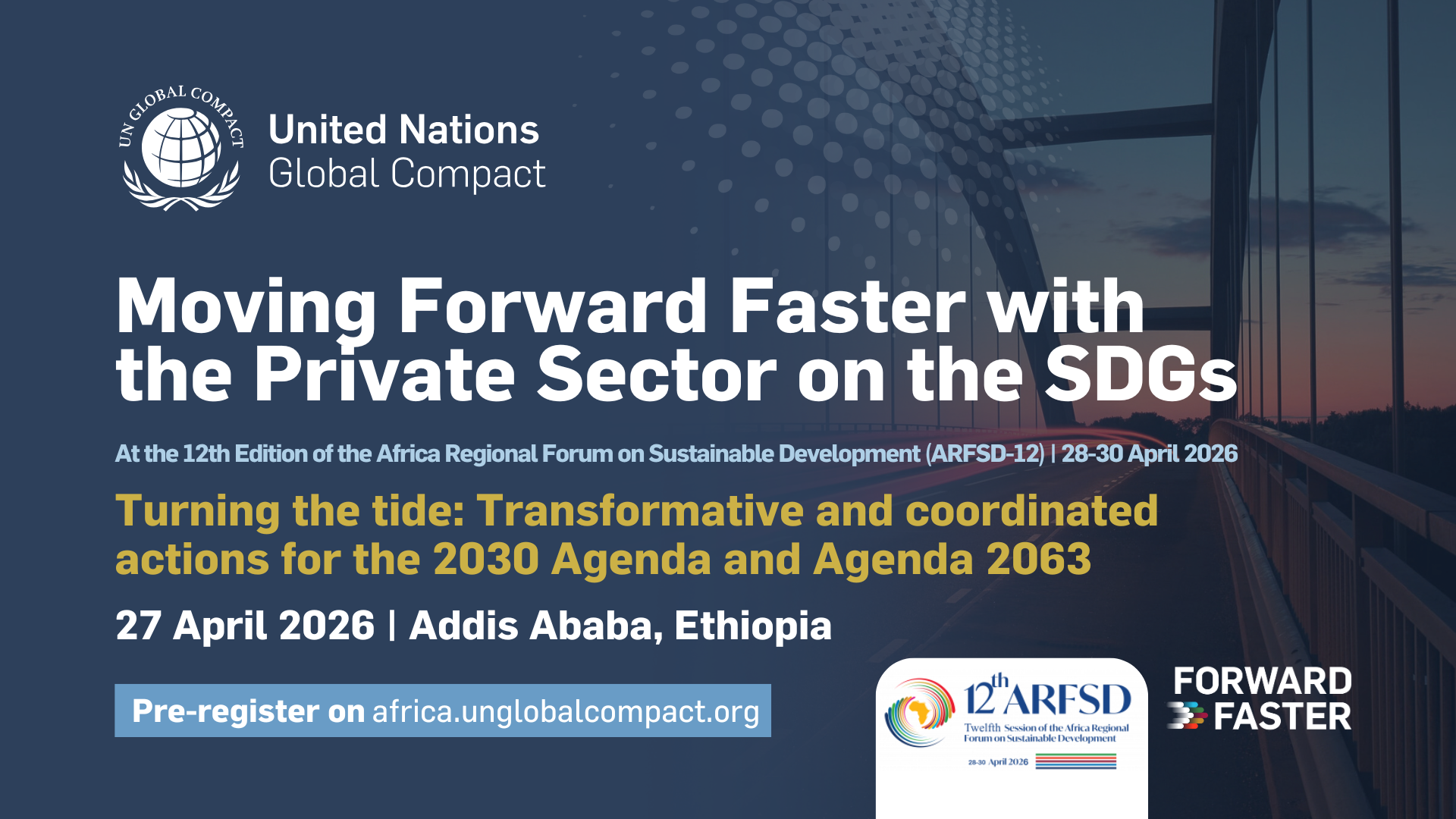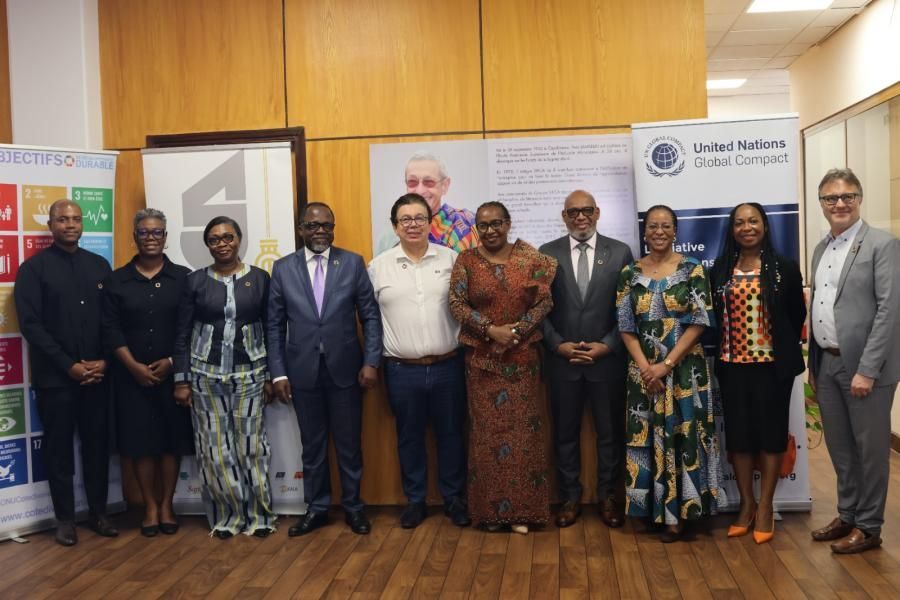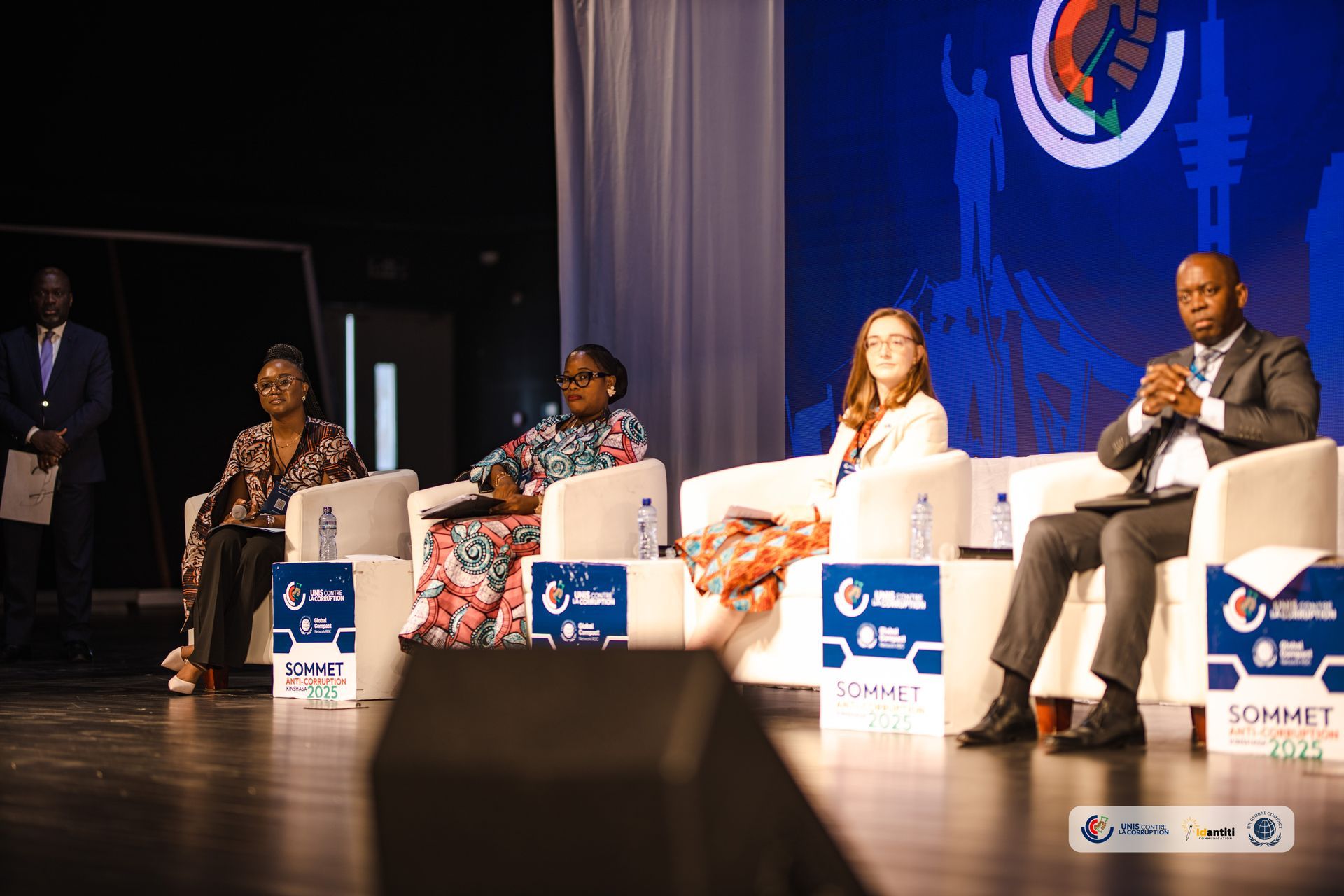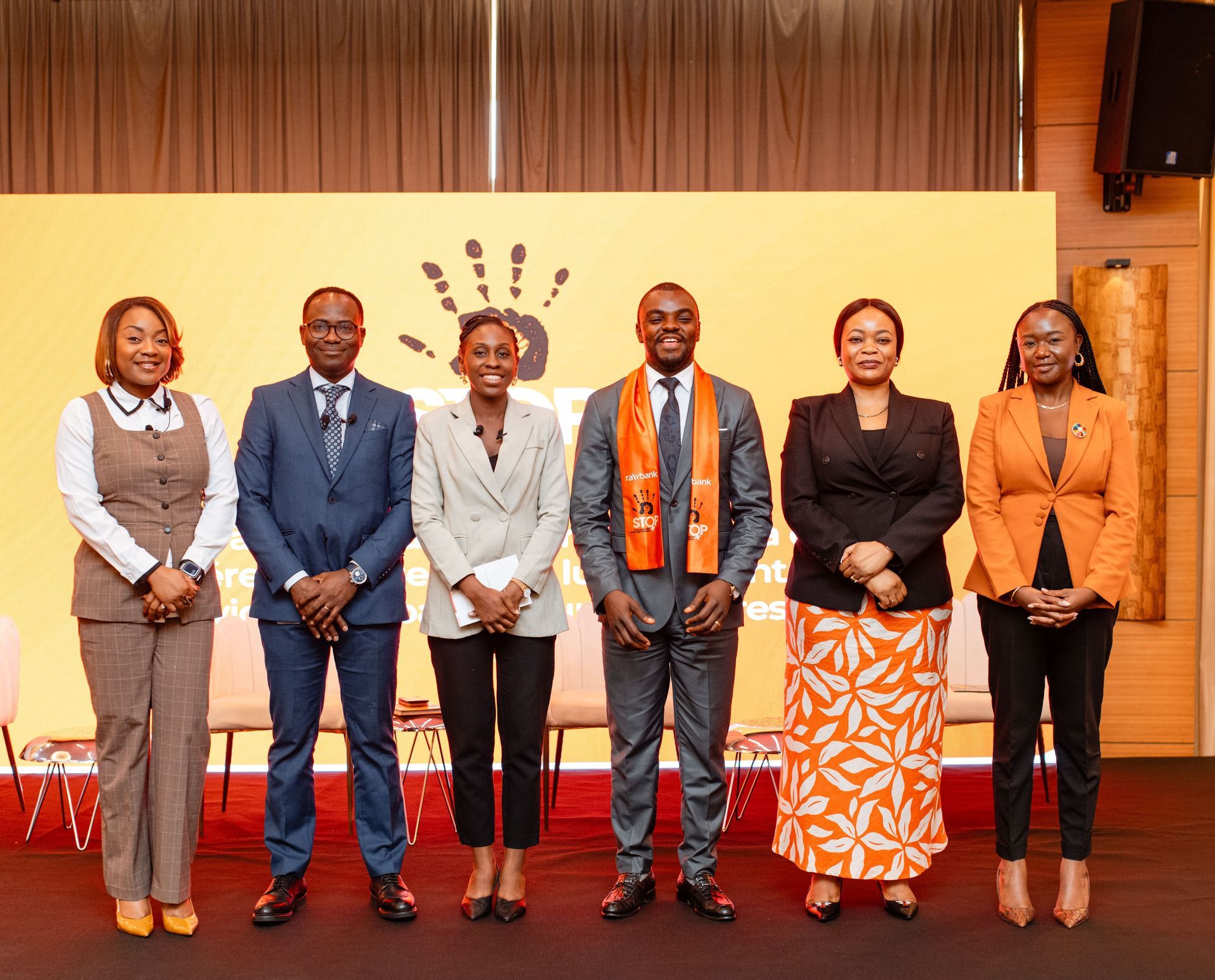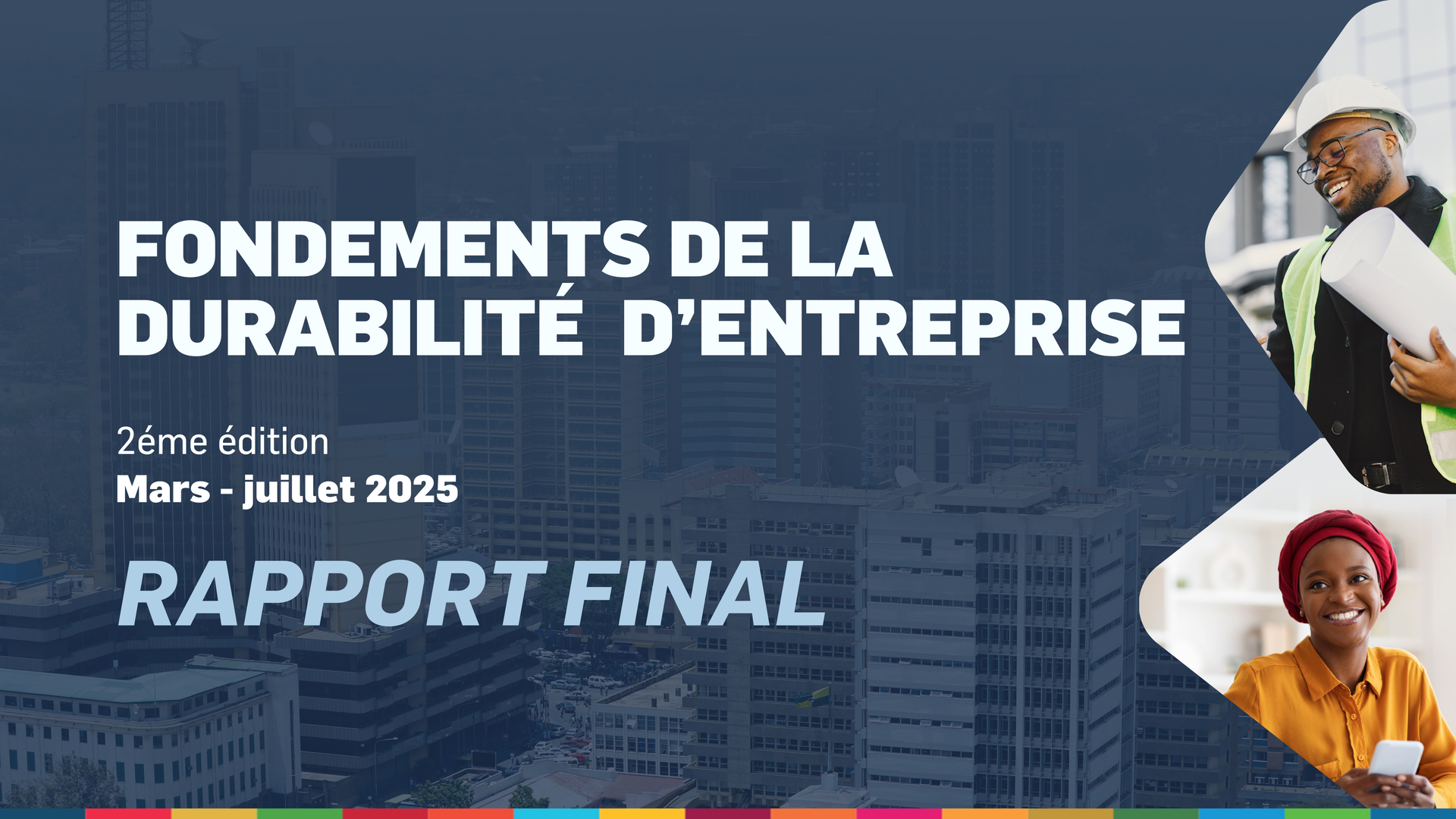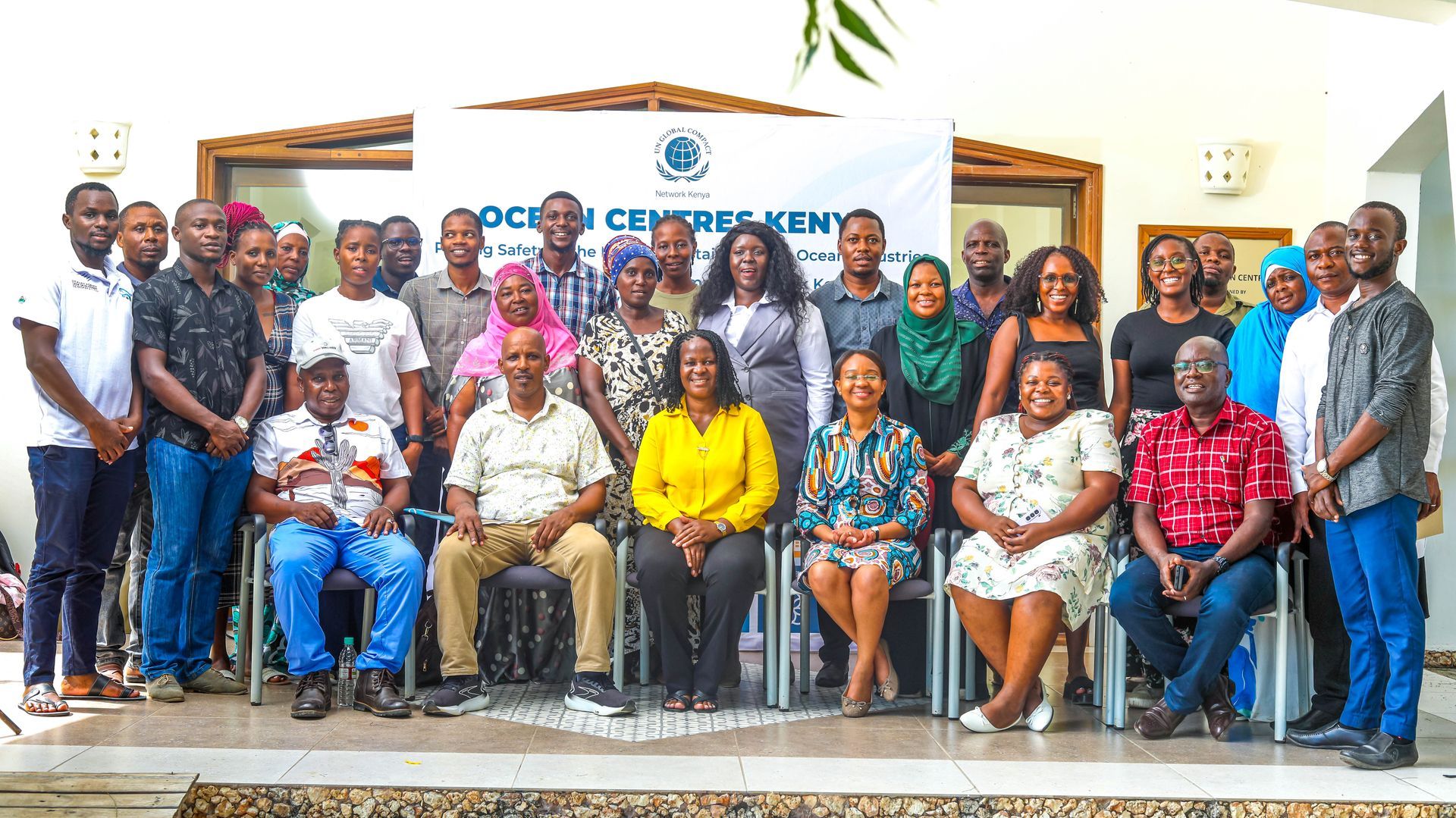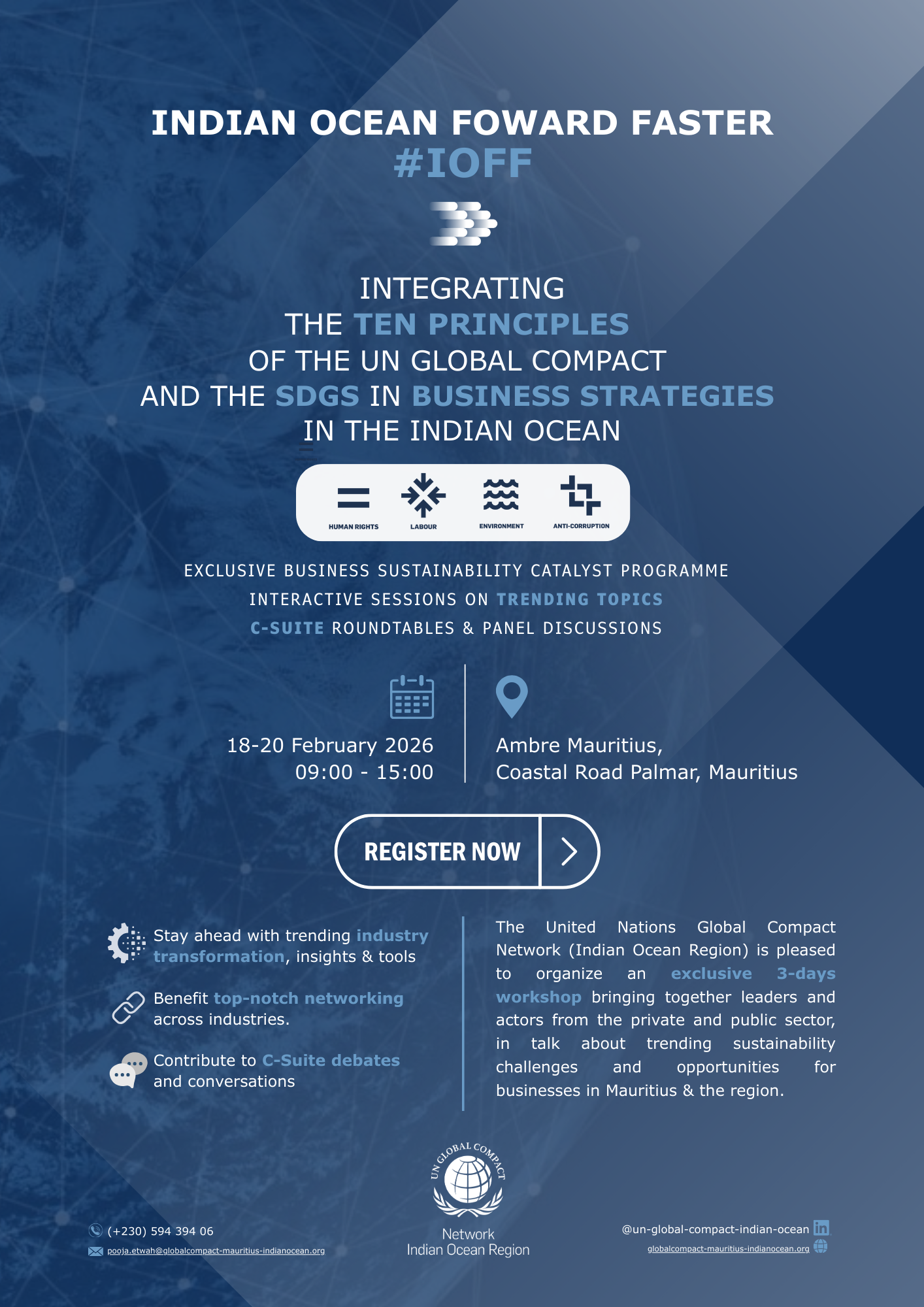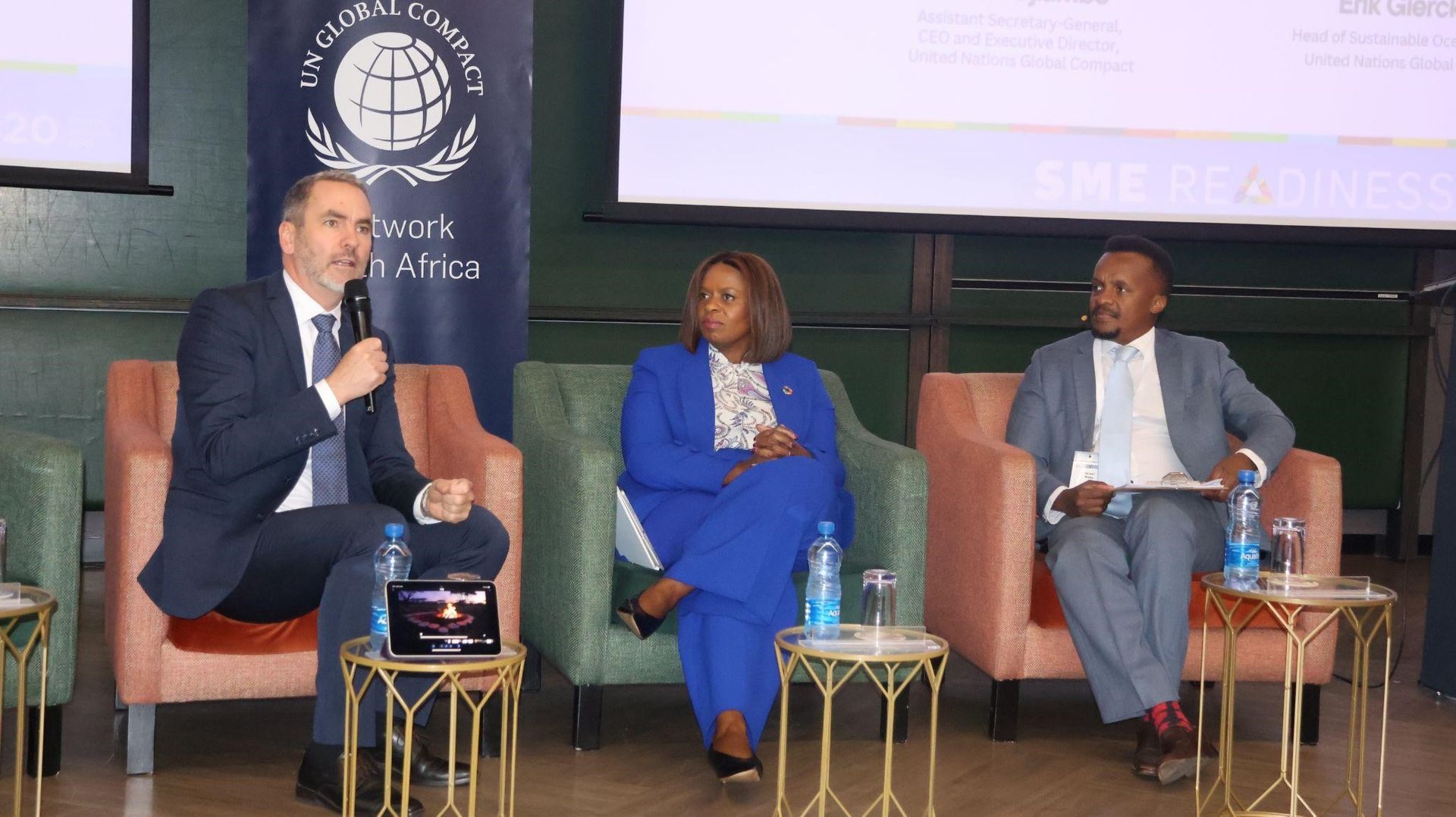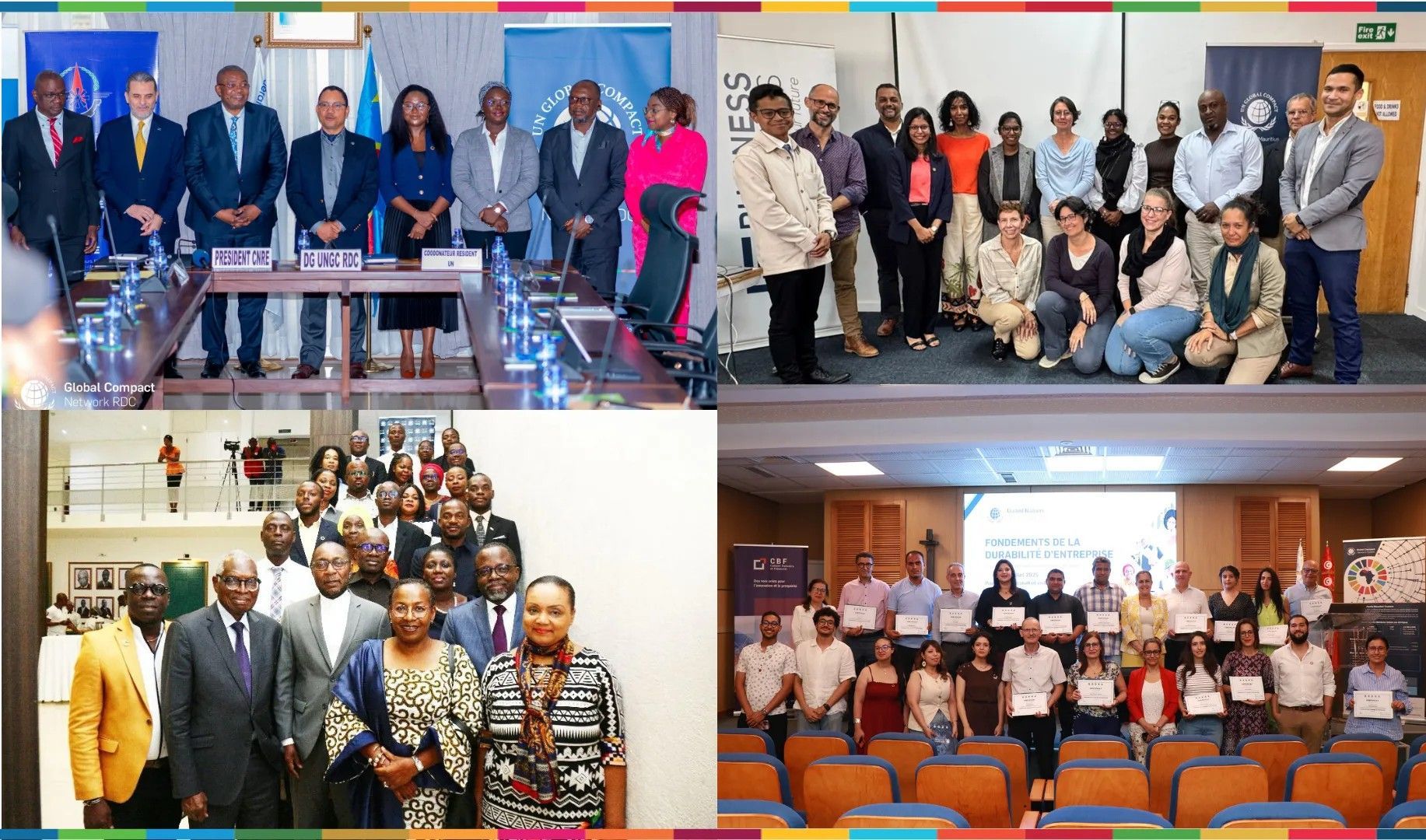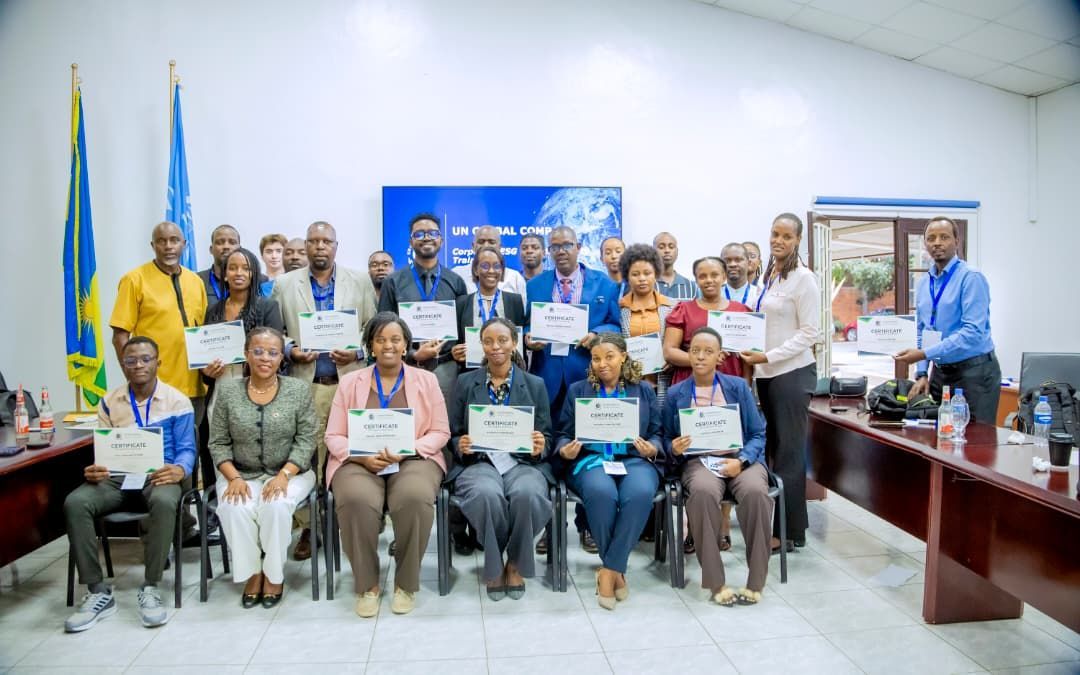CEO Roundtable: Nigerian Private Sector Endorses Transition Pathways for SDG Progress
CEO Roundtable: Nigerian Private Sector Endorses Transition Pathways for SDG Progress
Less than five years remain to achieve the 2030 Agenda, with only 17% of delivery targets for the Sustainable Development Goals (SDGs) on target; this represents a crisis.
According to the UNDP Global Multidimensional Poverty Index 2024, over 1.1 billion people across the world live in multidimensional poverty; of that number, 533 million people are in sub-Saharan Africa, with a further 133 million in Nigeria.
It is against this backdrop that the UN Global Compact Network Nigeria, the Sterling One Foundation (an initiative of Global Compact participant, Sterling Bank) and the United Nations in Nigeria organised a high-level CEO roundtable in Lagos, the commercial capital of Africa’s most populous nation, to rally the private sector around accelerating progress on the SDGs through six critical “transition pathways” identified by the United Nations (UN).
The roundtable’s discussions held on 15 April 2025 focused on catalyzing impact in six priority areas that offer high potential for accelerating sustainable development outcomes: food systems, energy access, digital connectivity, education, jobs and social protection, and climate resilience. The UN believes this approach zeroes in on key areas where targeted action can drive outsized gains across multiple SDGs, moving from commitments to concrete solutions.
Naomi Nwokolo, Executive Director, UN Global Compact Network Nigeria, opened the forum by emphasizing that aligning business strategies with the SDGs is a moral and economic imperative. “Accelerating SDG implementation is both a clear business imperative for long-term success,” Nwokolo said, highlighting that the six transition pathways provide a “strategic lens for impactful investment.”
The United Nations applauded the private sector’s proactive role and reinforced the call for partnership. Mohamed Malick Fall, United Nations Resident and Humanitarian Coordinator in Nigeria, delivered remarks noting that “our ability to meet the SDGs now depends on one thing – collective, decisive action at the local level.” He urged leaders to “break down silos, forge stronger partnerships, and commit to concrete action” that will deliver impact on the ground, echoing UN Secretary-General António Guterres’ charge to “rescue the SDGs” and keep the promise of a better world.
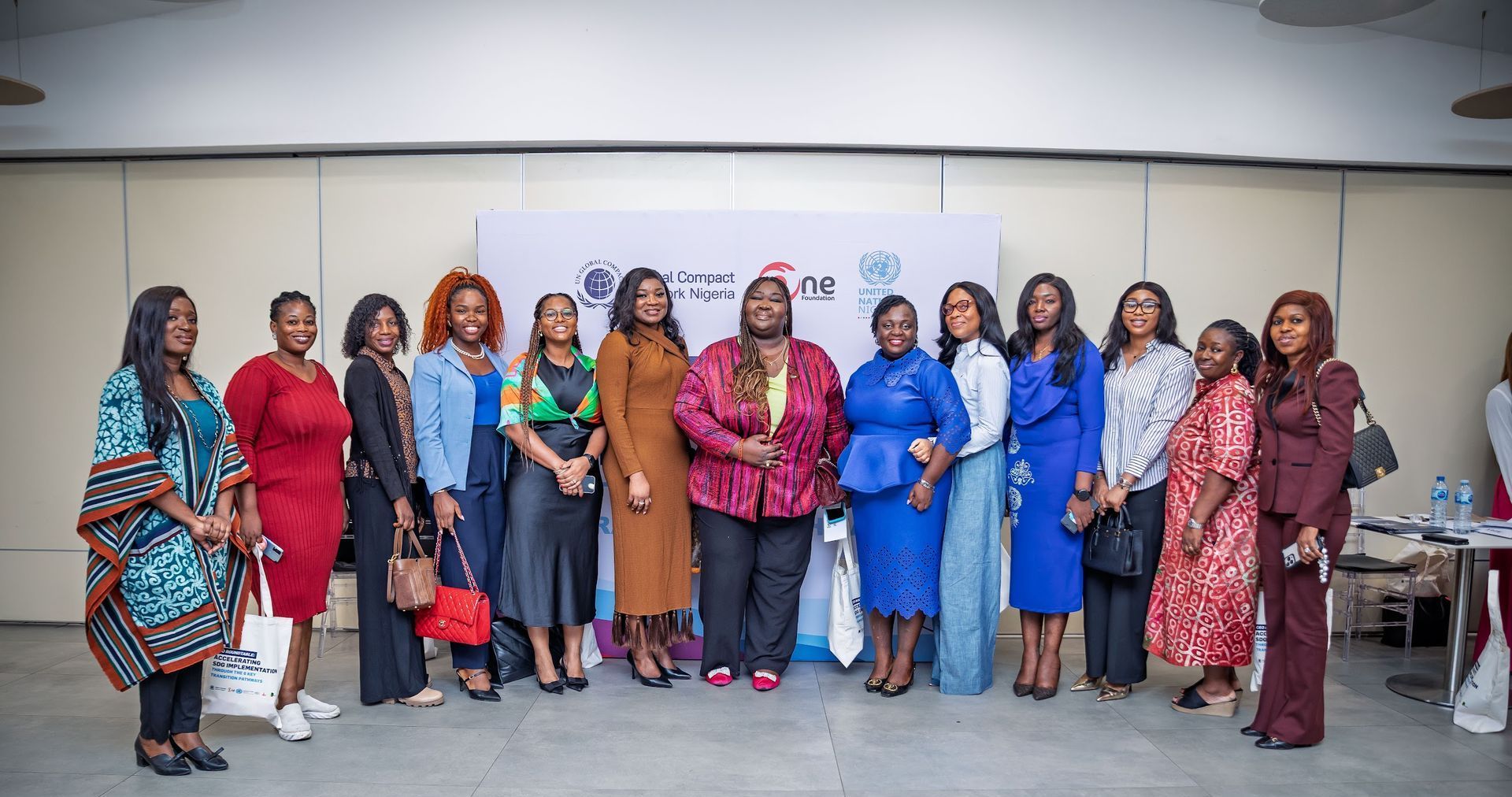
Meanwhile, Olapeju Ibekwe, CEO, Sterling One Foundation, in her address stressed the urgent and critical role held by the private sector. “The urgency is clear. Our efforts on the SDGs are not yet where they need to be. We are at a critical inflection point, less than five years from the 2030 deadline, with millions still trapped in multidimensional poverty and vulnerable to the cascading effects of climate change, inequality, and economic uncertainty. The private sector must scale investments and take bold steps that create impact in communities.”
Private sector leaders at the roundtable echoed this resolve, while on the policy side, Taiwo Oyedele, Chairman of the Nigerian Presidential Fiscal Policy & Tax Reform Committee, revealed that Nigeria’s forthcoming national fiscal policy will feature a dedicated section on the SDGs, aiming to hardwire development targets into governance.
This CEO Roundtable is part of a broader effort to unite business, development, and public sector actors around the SDGs in Nigeria and across Africa. To build on the momentum from the roundtable discussions, businesses are being encouraged to actively participate in newly established cross-sector working groups. These groups are designed to focus on the transition areas most relevant to members, serving as collaborative platforms to align initiatives, pool resources, and move forward to drive collective impact in support of strategic investment and sustainability goals.
